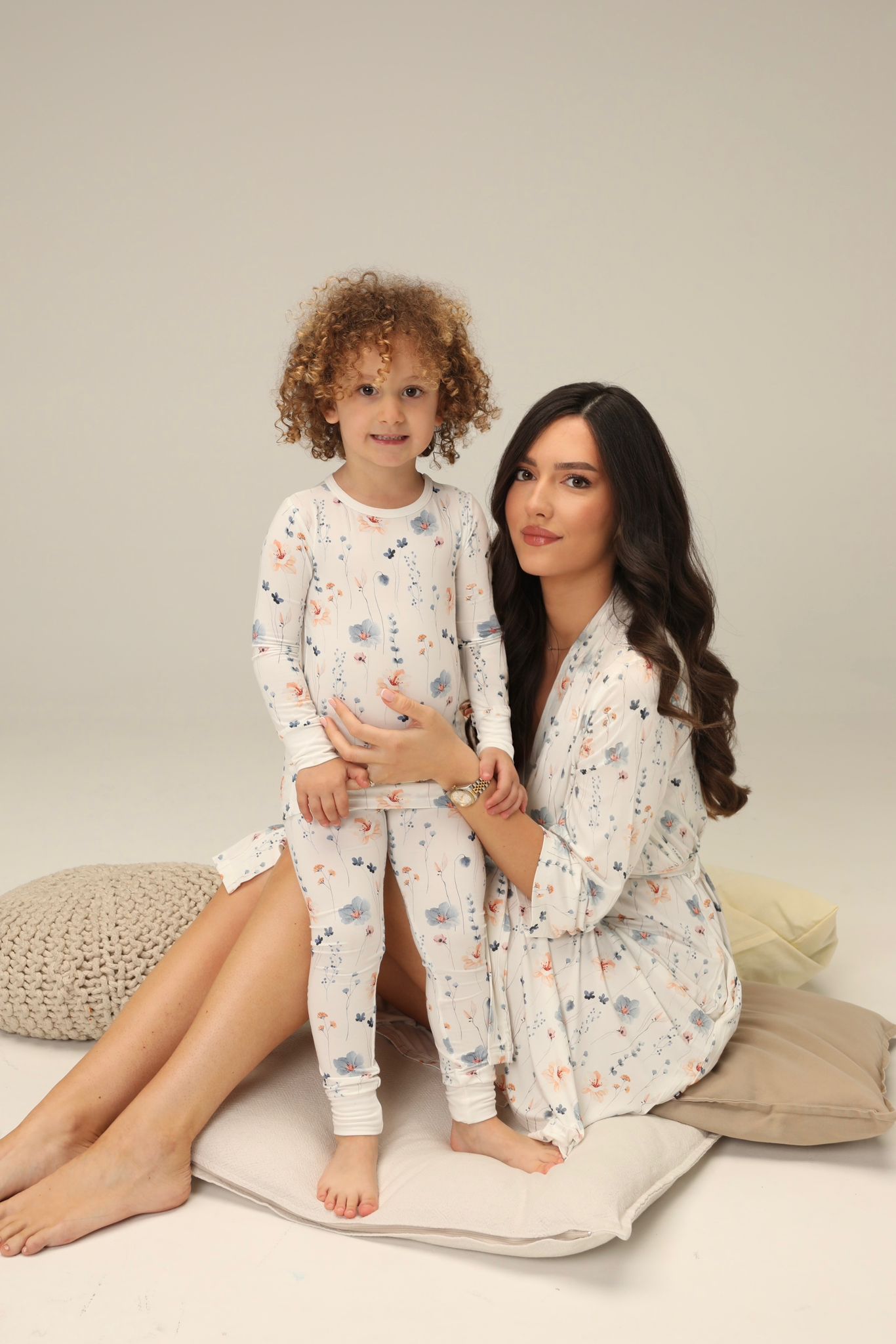Motherhood transforms life in ways you have never imagined – the sleepless nights, the gentle cuddles, the overwhelming affection, and the deep instinct to nurture and care. At MA-MA NYC, a brand created for moms by moms, we are devoted to extending that feeling of love to our mom and babywear line by meticulously choosing top-quality fabrics made to nurture your family’s well-being. We like to think of ourselves as a movement rather than just a clothing brand – a movement that makes all moms noticed, valued, and confident on their journey of motherhood. Crafted with love and exceptional attention to every detail - our mission is to give parents the power to choose premium sustainable baby clothing crafted with the same love and care as for our own children.
Made from ultra-soft, durable, and breathable bamboo, certified by OEKO-TEX Standard 100, our sleepwear and robes are designed for those precious moments you’ll cherish forever – rocking your baby to sleep or soaking up in morning cuddles. If you are making your hospital bag list for labor, look at our product selection, which includes swaddle blankets, footies, knotted onesies, hats, and accessories that soothe and comfort babies, ensuring peaceful rest. Robes for moms, paired with swaddles or onesies, are a soft sanctuary, perfect for cozy days and restful nights. They also are designed to match so you can capture your first moments in style.


